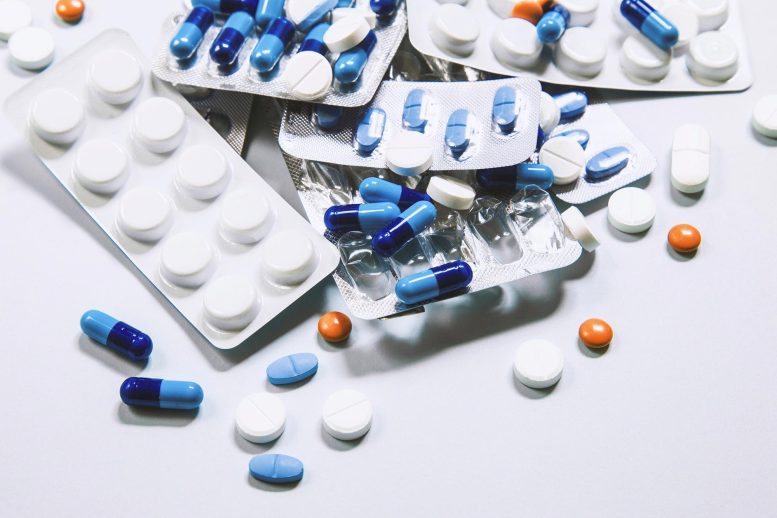
Some common drugs can help and others hinder immune responses.
The largest clinical review of immune responses to paracetamol, non-steroidal anti-inflammatory drugs (NSAIDs), and opioid analgesics, with a focus on infectious diseases, has provided insights into unintended impacts of these commonly used medicines. The findings highlight the potential for some of these medicines to join the fight against old and new infectious diseases.
Although research into these drugs has focused on their effects on pain and fever management, until now, their impact on the treatment of infectious diseases specifically was unclear. The findings highlight the need for more studies in this under-recognized area of research, with wide-reaching implications.
Key Findings of the Clinical Review
- For pain: Morphine suppresses key cells of the immune system and increases the risk of infection, particularly after cancer surgery.
- For fever: Antipyretics – e.g. Paracetamol, Ibuprofen, Aspirin – can reduce the desirable immune response when taken for vaccination.
- Aspirin could be an affordable and accessible therapeutic option for tuberculosis – which mainly afflicts poor countries, with beneficial results shown in animals and humans.
- Anti-inflammatory medicine indomethacin may reduce viral replication in COVID-19 but large-scale human trials are needed.
Researchers led by the University of Sydney’s Faculty of Medicine and Health opted for a ‘clinical’ review in order to have a broader scope to synthesize the available evidence, noting the importance of further research and trials regarding infectious disease responses.
The research was unplanned and the findings unexpected, with lead author Christina Abdel-Shaheed saying they initially were interested in studying the possible impacts of paracetamol (acetaminophen) during the pandemic, when people hoarded the drug in the first months of COVID-19.
“We decided to study painkillers and fever medications generally and were amazed by what we found,” she said.
“In 14 years of studying pain, this is the most important research I have been involved in.”
The findings are published today in a leading journal, the British Journal of Clinical Pharmacology.
Caution Urged During the Pandemic
Pain researcher Dr. Christina Abdel-Shaheed, from Sydney Musculoskeletal Health, said the relationships uncovered with infectious diseases highlighted the need for rigorous clinical trials.
“Our review shows some of the common pain and fever medications may work with the immune system to fight infection, whereas others work against it and increase the risk of contracting or responding badly to infectious diseases,” Dr. Abdel-Shaheed said.
“Taking paracetamol or ibuprofen before or immediately after vaccination – for example for COVID-19 – to try to prevent mild fever or headache is not recommended, because this could reduce the body’s desirable immune response to the vaccine.
“For chickenpox, use of ibuprofen is not recommended as it might increase the risk of secondary bacterial skin infections.”
Dr. Justin Beardsley, infectious disease specialist at Westmead Hospital and researcher with Sydney Institute for Infectious Diseases, said an important finding of this review during the pandemic was that: “morphine – one of the most commonly used opioid analgesics in post-surgical and critical care – suppresses key innate immunity cells, thereby increasing the risk of infection”.
He highlighted: “This is particularly the case with cancer patients, who are already vulnerable to COVID-19.
“Efforts are needed to achieve adequate analgesia whilst avoiding immune-suppression in the immediate postoperative period caused by opioids such as morphine — both for people undergoing cancer surgery as well as for the immunocompromised generally,” said Dr. Beardsley, who also works with the Westmead Institute for Medical Research.
Positive Impacts on Our Immunity
Professor Andrew McLachlan said on the positive side, the findings provide new insights for further research to evaluate these commonly used medicines, which could be repurposed to improve outcomes for people undergoing treatment for infectious diseases.
“With the urgent need for new treatments for COVID-19 and the declining efficacy of some antimicrobial agents due to resistance, now more than ever we need medicines which can maintain or enhance the efficacy of anti-infective drug treatments, said Professor McLachlan, the Head of School and Dean of Pharmacy at the University of Sydney.
“The results of this review suggest that commonly used medicines for pain and fever should be further explored as inexpensive and effective adjunctive treatments which influence immune and inflammation pathways for people undergoing treatment for infection.”
Under-Researched Area
Co-author Professor Ric Day from UNSW and St Vincent’s Hospital said research was still catching up in this new area of study.
“One of the problems is that widely used medicines –such as paracetamol, nonsteroidal anti-inflammatory drugs like ibuprofen, and corticosteroids such as prednisone – have been around for decades, and in the past we didn’t tend to consider their impacts on the immune system because it has been an under-recognized area.
“From community use to hospital and acute care, these classes of pain and fever medications are among the most popular drugs worldwide but we need to consider the significant impact these can have on our immune system and our response to infectious diseases, including COVID-19.”
Reference: “Immunomodulatory effects of pharmaceutical opioids and antipyretic analgesics: Mechanisms and relevance to infection” by Christina Abdel Shaheed, Justin Beardsley, Richard O. Day and Andrew J. McLachlan, 1 March 2022, British Journal of Clinical Pharmacology.
DOI: 10.1111/bcp.15281
Never miss a breakthrough: Join the SciTechDaily newsletter.